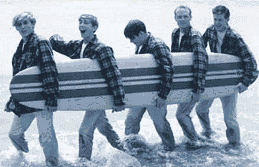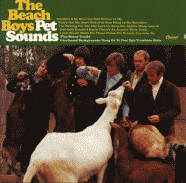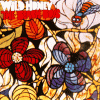Holland
1973
|
Album recorded in the title country, sees the band furthering its AOR interests.
Although the results didn't quite match the strain and considerable financial setback of the recording, Holland refined the sound of the previous album to a degree that the general public began to take notice. The album inched into the top 40, and was awarded Rolling Stone's Record of the Year, as voted on by noted rock music critics. However, the overall sound is similar to So Tough, albeit more surefooted and slightly less convoluted.
Packaged with the album was Brian's "Mt. Vernon & Fairway: A Fairy Tale". For anyone wondering what the reclusive pop-genius was up to at the time, this little ditty should suffice. It's seemingly an autobiographical piece, about a young prince's fascination with the music of a 'magic transistor radio', and his adventures with the 'Pied Piper'. Jack Rieley narrates the story, over very whimsical music, reminiscent of those children's records that instruct you to turn the page at the sound of the bell. This is the farthest Brian ever got from pop music, and many fans, even generous ones, have a hard time listening to the piece. As Tom Petty says, "Very Brian."
Representative tracks
Sail On Sailor: This magnificent track, sung by Chaplin, was written by Brian with assistance from several others, including old friend Van Dyke Parks. Reportedly, Parks literally had to take Brian to task just to finish the piece, such was the state of Brian's emotional haze. Anyways, the song is a definite highlight of the mid-70s Beach Boys, as a soulful shuffle about persistence.
California Saga: Comprising "Big Sur", "The Beaks of Eagles", and "California". This is really the brainchild of Mike and Al, who, contrary to popular belief, could come up with decent stuff now and again. Think of it as a hippie's testament to the West Coast. The first part is fine roots rock in waltz time, owing as much to The Band and Dylan as to the California sound. The middle part, and probably the most controversial to fans, is a spoken word piece based on a Robinson Jeffers poem. Here (and elsewhere), we get a taste of the Boys' ecological agenda. It's not as bad as it sounds, largely due to the textured instrumental arrangement, and Al's ultra-sincerity. The final section, "California", is closer to an old-style fun-in-the-sun track, with group vocals and a catchy chorus. It even steals the bass line from "California Girls", foreshadowing the nostaligia act the band would soon become.
|


















